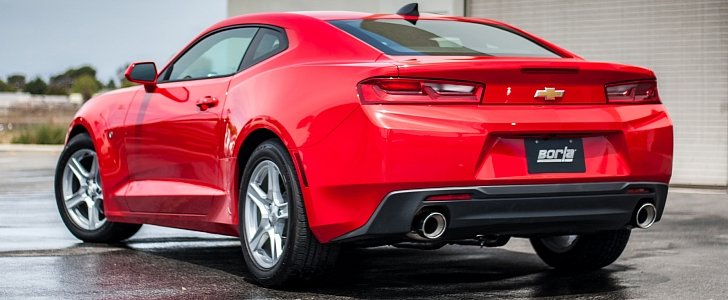In the wake of the Dieselgate scandal, the Australian government thought about something. What, you ask? In essence, the Land Down Under wants better-quality fuel, better engines, as well as improved efficiency standards.
This week, the federal government of Australia met with a handful of industry experts to talk about how to reduce vehicle emissions. Draft proposals have been made, while sharply dressed men have been assigned to identify the benefits of the proposed fuel emissions changes.
The big boys behind these drafts are Josh Frydenberg, Australia’s Minister for the Environment and Energy, and Paul Fletcher, the Minister for Urban Infrastructure. According to a joint release, the “proposals are designed to keep Australia in line with international vehicle markets.” In this regard, the first thing the Land Down Under will do is to require automakers to supply vehicles “with more fuel-efficient engines.” It’s easier said than done, but new standards could cut consumer spending by AUD 28 billion by 2040.
Translated into fuel savings per year per the average Australian car owner, that would be AUD 519. Light commercial vehicle owners, meanwhile, are expected to save AUD 666. If you wonder how more fuel efficient engines can help with keeping Australia’s air clean, the proposed standards could reduce vehicle greenhouse gas emissions by 65 million metric tons by 2030.
Another proposal comes in the form of upgrading pollution standards for everything ranging from cars to buses. By doing so, Australia expects to reduce toxic emissions in such a way that the government could save as much as AUD 4.2 billion in healthcare costs by 2040. Last, but not least, there’s a proposal to “to improve the quality of our road transport fuels.”
At the present moment, the base unleaded fuel on sale in Australia is 91 octane gasoline. With current standards due to expire in 2019, the Land Down Under could propose a higher octane rating or, if possible, ethanol-blended fuels. These being said, the Australian Automobile Association is calling for improvements in real-world testing procedures.
“With the Government actively considering stricter standards for Australia’s vehicle and fuel sectors, it’s critical that real-world testing is introduced to ensure motorists aren’t asked to pay more for regulation that fails to deliver environmental benefit,” said Michael Bradley, chief executive at the AAA.
The big boys behind these drafts are Josh Frydenberg, Australia’s Minister for the Environment and Energy, and Paul Fletcher, the Minister for Urban Infrastructure. According to a joint release, the “proposals are designed to keep Australia in line with international vehicle markets.” In this regard, the first thing the Land Down Under will do is to require automakers to supply vehicles “with more fuel-efficient engines.” It’s easier said than done, but new standards could cut consumer spending by AUD 28 billion by 2040.
Translated into fuel savings per year per the average Australian car owner, that would be AUD 519. Light commercial vehicle owners, meanwhile, are expected to save AUD 666. If you wonder how more fuel efficient engines can help with keeping Australia’s air clean, the proposed standards could reduce vehicle greenhouse gas emissions by 65 million metric tons by 2030.
Another proposal comes in the form of upgrading pollution standards for everything ranging from cars to buses. By doing so, Australia expects to reduce toxic emissions in such a way that the government could save as much as AUD 4.2 billion in healthcare costs by 2040. Last, but not least, there’s a proposal to “to improve the quality of our road transport fuels.”
At the present moment, the base unleaded fuel on sale in Australia is 91 octane gasoline. With current standards due to expire in 2019, the Land Down Under could propose a higher octane rating or, if possible, ethanol-blended fuels. These being said, the Australian Automobile Association is calling for improvements in real-world testing procedures.
“With the Government actively considering stricter standards for Australia’s vehicle and fuel sectors, it’s critical that real-world testing is introduced to ensure motorists aren’t asked to pay more for regulation that fails to deliver environmental benefit,” said Michael Bradley, chief executive at the AAA.

